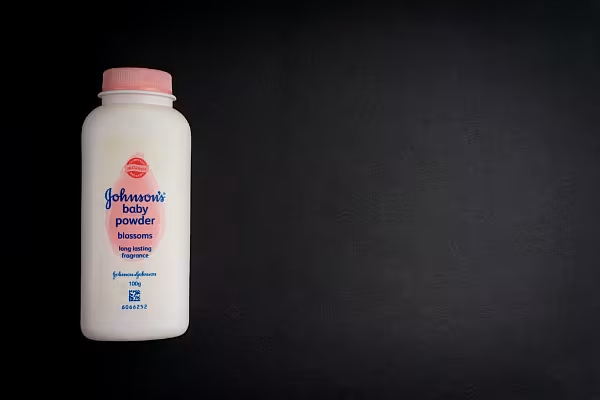Johnson & Johnson has announced it is to stop selling its talc Baby Powder in the United States and Canada, saying demand has dropped in the wake of what it called 'misinformation' about the product’s safety amid a barrage of legal challenges.
J&J faces more than 19,000 lawsuits from consumers and their survivors claiming its talc products caused cancer due to contamination with asbestos, a known carcinogen.
In its statement, J&J said it 'remains steadfastly confident in the safety of talc-based Johnson's Baby Powder,' citing "decades of scientific studies."
J&J has faced intense scrutiny of the safety of its baby powder following an investigative report by Reuters in 2018 that found the company knew for decades that asbestos lurked in its talc.
Internal company records, trial testimony and other evidence show that from at least 1971 to the early 2000s, the company's raw talc and finished powders sometimes tested positive for small amounts of asbestos.
The Reuters article prompted a stock selloff that erased about $40 billion from J&J’s market value in one day and created a public relations crisis as the blue-chip healthcare conglomerate faced widespread questions about the possible health effects of one of its most iconic products.
J&J has also been the target of a federal criminal investigation into how forthright it has been about its talc products’ safety, an investigation by 41 states into its baby powder sales, which it disclosed in April, and an investigation into health risks of asbestos in talc-containing consumer products by a Congressional subcommittee.
US Representative Raja Krishnamoorthi, who led the Congressional inquiry, described J&J's decision to stop selling talc baby powder as 'a major victory for public health', adding, "My Subcommittee’s 14-month investigation revealed that Johnson & Johnson knew for decades that its product contains asbestos."
In response to evidence of asbestos contamination presented in media reports, in the court room and on Capitol Hill, J&J has repeatedly said its talc products are safe, and do not cause cancer.
Challenges
Johnson & Johnson said it had stopped shipping talc baby powder when the COVID-19 crisis led to limits on shopping and manufacturing, and that now it would wind down North American sales.
"Demand for talc-based Johnson’s Baby Powder in North America has been declining due in large part to changes in consumer habits and fuelled by misinformation around the safety of the product and a constant barrage of litigation advertising," it said in a statement.
Sold continuously since 1894, Johnson’s Baby Powder now accounts for only about 0.5% of its US consumer health business, the company said. But it remains a symbol of the company's family-friendly image.
An internal J&J marketing presentation from 1999 refers to the baby products division, with Baby Powder at the core, as J&J’s '#1 Asset,' grounded in 'deep, personal trust' and a 2003 internal memo described it as a 'sacred cow,' Reuters reported.
Christie Nordhielm, a professor of marketing at Georgetown, said it appears J&J made its decision to withdraw from the market while consumers are preoccupied with the pandemic. "It's a nice time to quietly do it," she said, adding "it will minimise the reputational hit."
Shares of J&J were unchanged in after-hours trading following the disclosure.
'Unfounded Allegations'
'We will continue to vigorously defend the product, its safety, and the unfounded allegations against it and the Company in the courtroom,' Johnson & Johnson said. 'All verdicts against the company that have been through the appeals process have been overturned.'
Nevertheless, J&J's legal challenges likely will continue, some lawyers have said.
J&J said it will continue to sell cornstarch-based baby powder in North America, and will sell both its talc and cornstarch-based products in other markets around the world.














